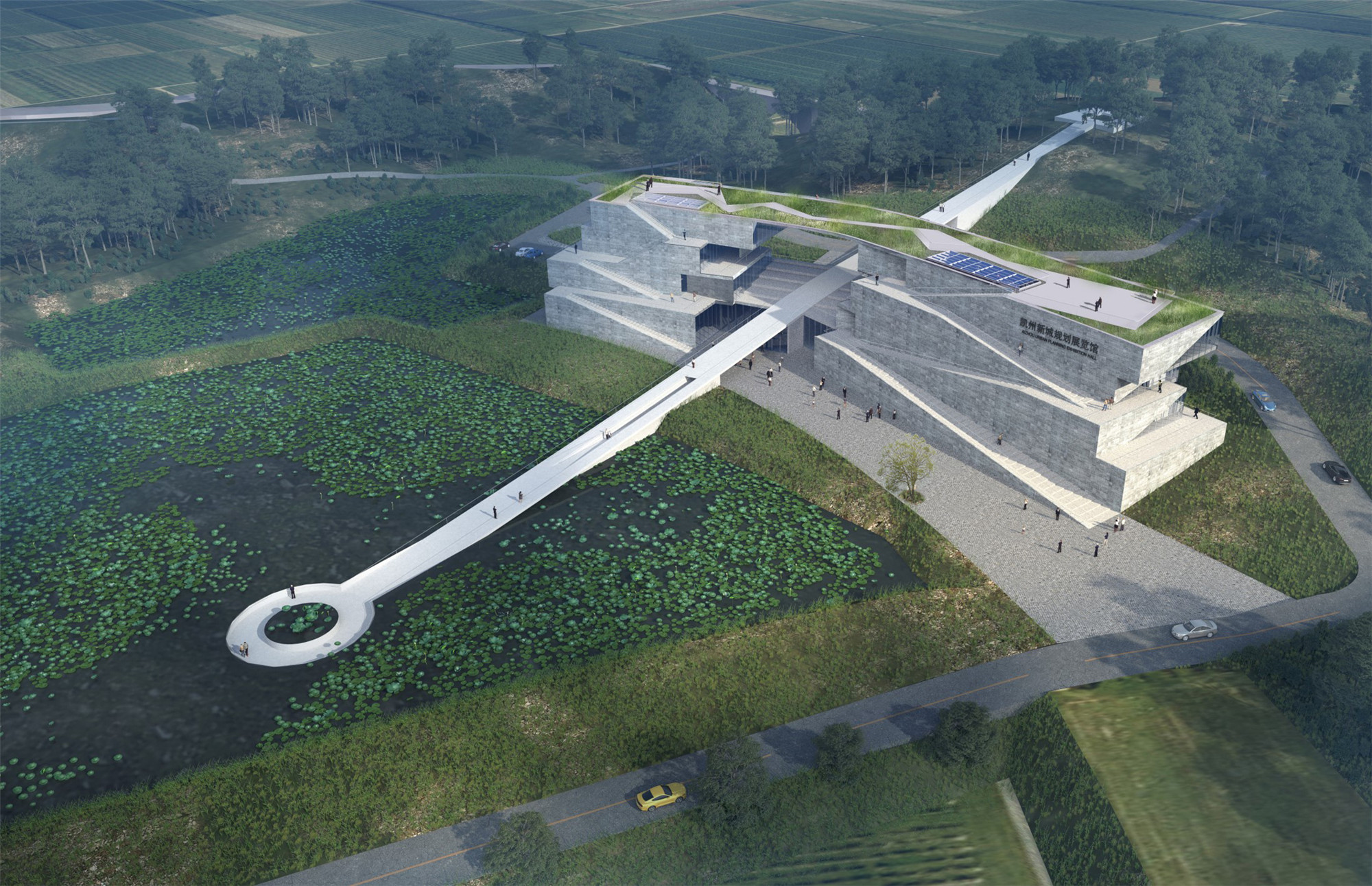
设计单位 北京市建筑设计研究院有限公司 朱小地工作室
项目地点 四川省德阳市凯州新城
项目面积 7819.93平方米
项目状态 建设中
凯州新城规划展览馆位于凯州新城启动区范围内,毗邻新城两轴交汇之地,横轴是启动区核心景观带“人民渠公园”,纵轴是联系新城市群的纽带“中金快速路”。地处新城建设及发展的龙头地带,意味着规划展览馆既是新城的重要公共空间,也是新城对外展示最直接的窗口。
The Kaizhou New Town Planning Exhibition Hall is located within the start-up zone of the Kaizhou new town, where the two axes of the new town join together. The horizontal axis is the Renmin Canal Park, which is the core landscape belt of the start-up zone. The vertical axis is the Zhongjiang – Jintang expressway, which is the belt connecting the new urban agglomerations. Location within the leading development zone of the new town means that the exhibition hall is not only an important public space of the new town, but also the most direct window that the new town shows itself to the outside.
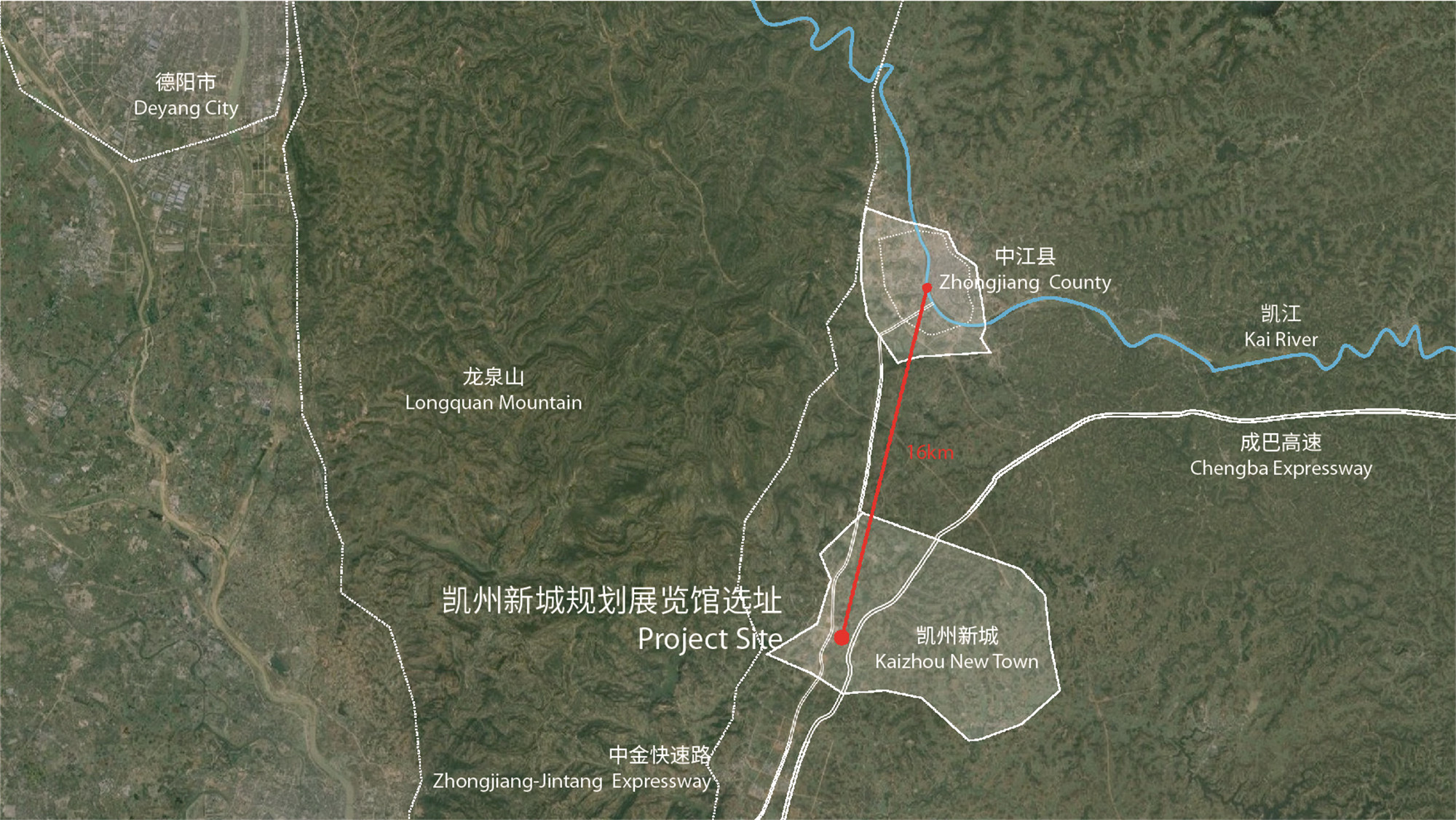
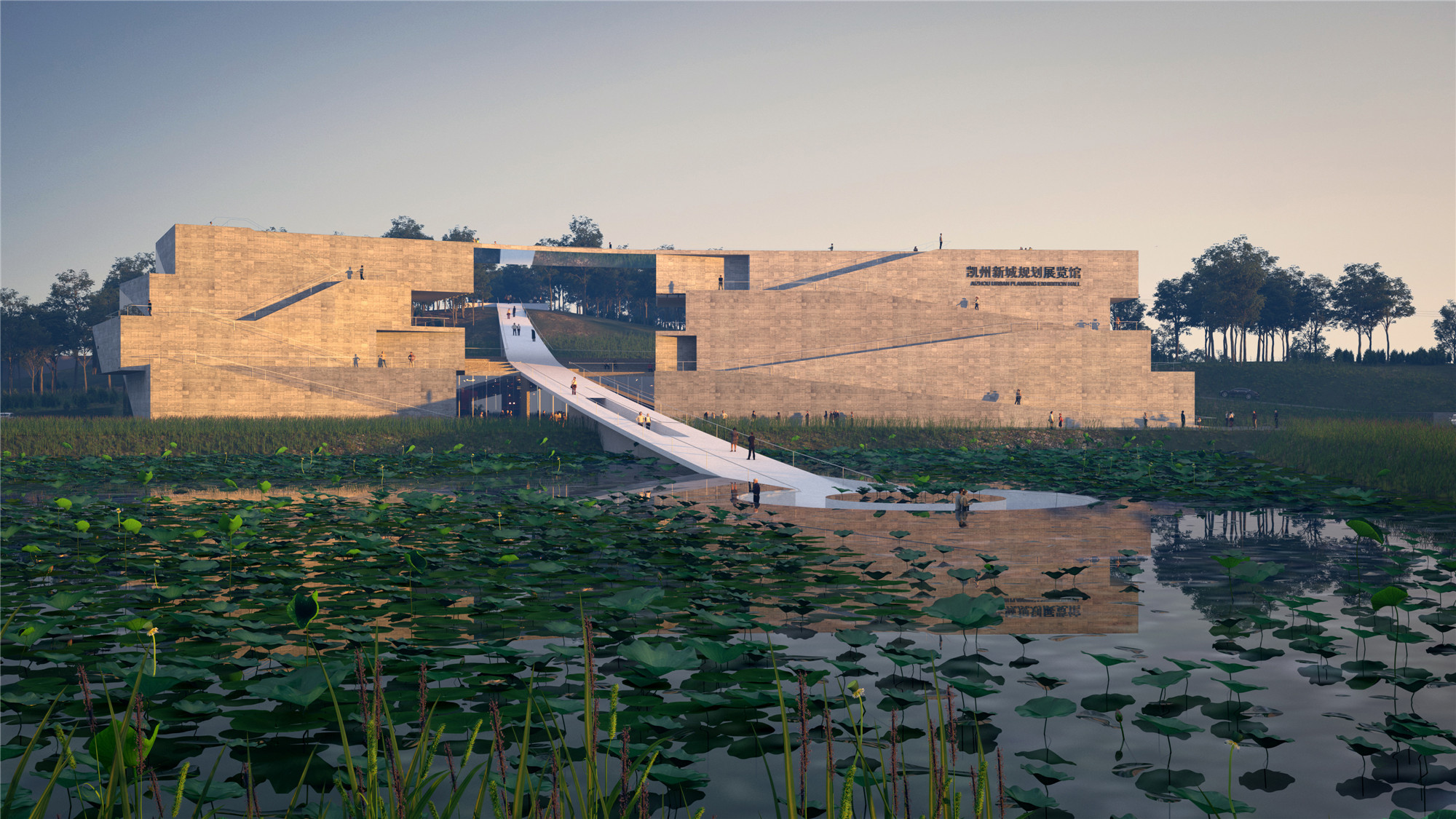
展览馆基地位于金中快速路东侧,总占地面积约1.4万平方米,呈南北狭长形。场地西临荷塘,东靠山丘,人民渠就在山顶流过。背山面水,极具当地自然景观特色。现场的一条沿东侧山丘延伸,进入村庄谷地的田埂小路,被扩展为进出展览馆的主要道路。
This exhibition hall is located on the east of the Zhongjiang – Jintang expressway, covering a total area of about 14,000m2 in a narrow south-to-north layout. It is adjacent to a lotus pond on its west, and the hill on its east. The Renmin Canal runs through the top of the hill. This site is thereby endowed with adequate natural landscape features. There was a ridge path extending from the hill on the east into the valley of the village, which had been expanded as the main road to the exhibition hall.
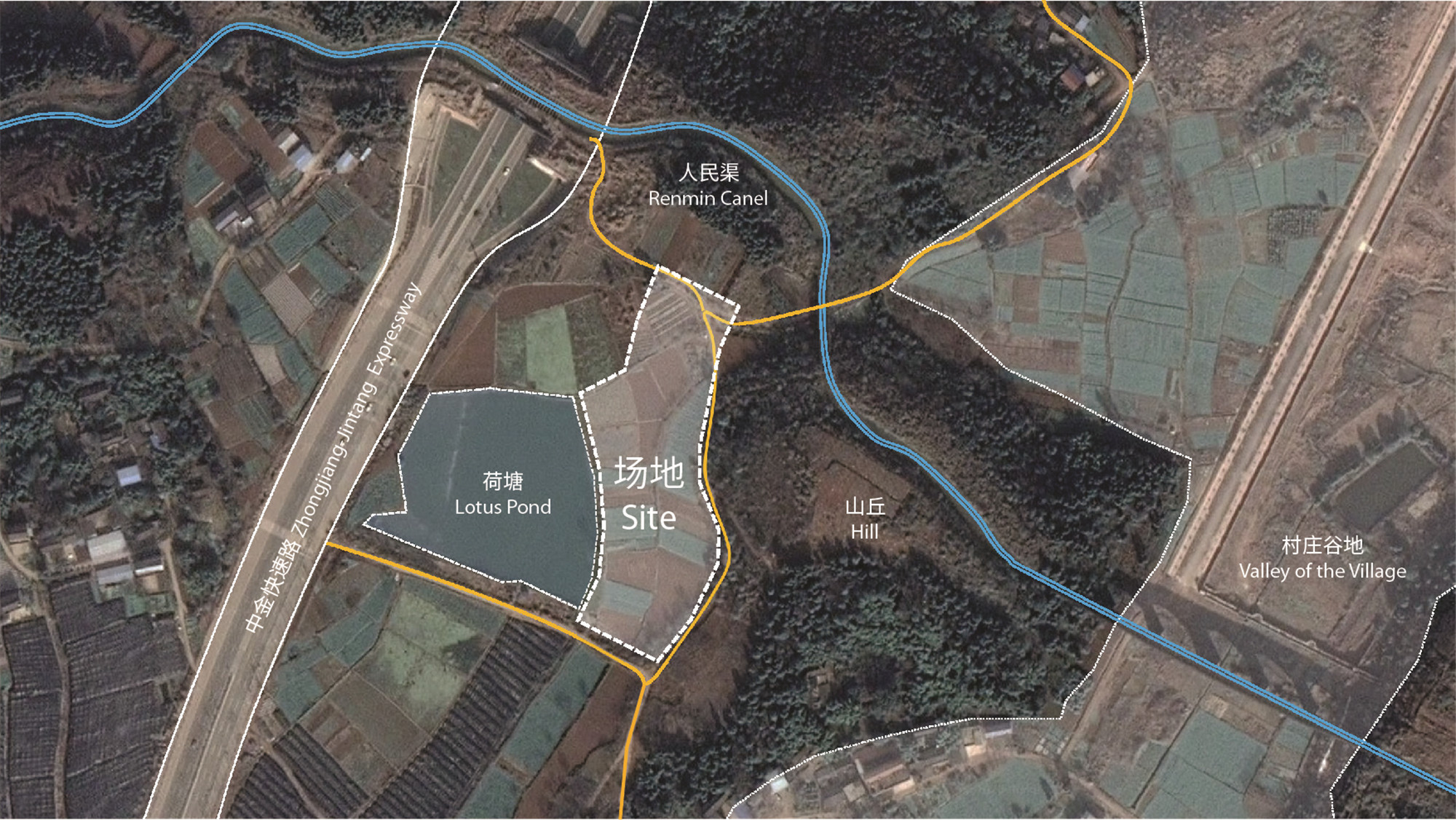
场地具有较好的景观优势,既有自然景观荷塘,也有人文景观人民渠。优美的荷塘景观是传统农业社会乡村景观的延续,而人民渠则是特定历史时期人们生产活动的见证。建筑师认为,以规划展览馆为代表设计的新城建设,需要重新审视人与自然的关系,回应场地周围的特定环境,激活已存在的时空要素,最终形成准确的创作意向。
The site takes advantages of the landscape features both of the natural landscape (lotus pond) and the human landscape (the Renmin Canal). The beautiful lotus pond is a continuation to the rural landscape of traditional agricultural society, while the Renmin Canal is the witness to human’s production activities in a specific historical period. The architect believes it is necessary to reconsider the relationship between human and nature when designing the exhibition hall that is aimed to be a presentative for development of the new town, which shall echo to the specific environment of the site and activate the existing space-time elements to achieve an accurate design intention.
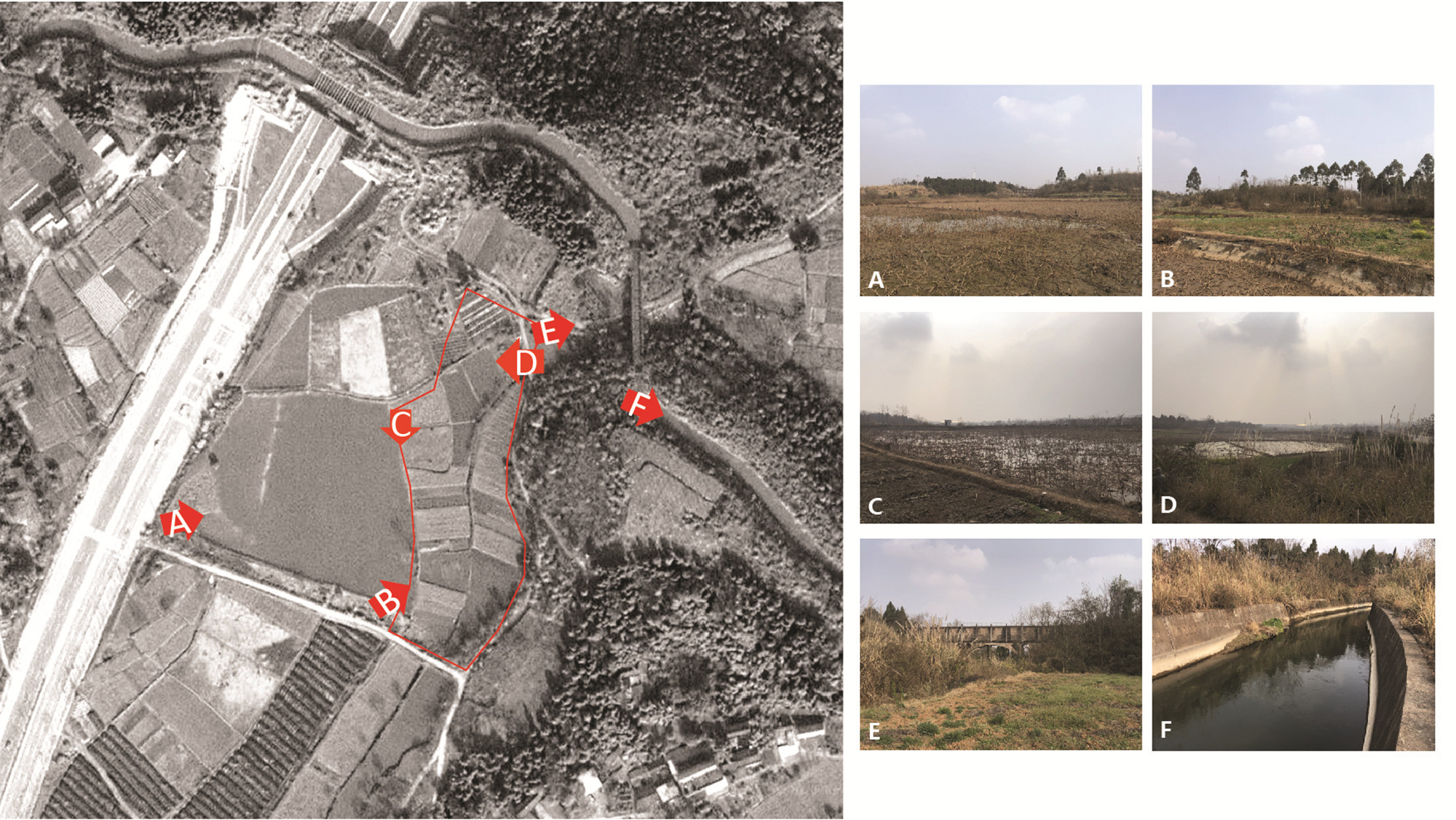
方案结合功能要求,首先在场地中置入一个大约20米高、100米长的形体作为基本体量。同时,设计一座穿过建筑,连接荷塘与山顶的连桥,与建筑体量形成交叉关系。由此,建筑体量的中部打开了一个大尺度窗洞,既形成室外公共空间,又进一步强化这种对话关系、以及“窗”的概念。
According to the functional requirements, a 20m-high and 100m-long building is placed in the site as the basic volume. A bridge is designed that goes through the building, connects the lotus pond and the hill, which forms a cross dialogue with the building volume. A large-scale window opens in the middle of the building volume forms an outdoor public space, strengthens such dialogue and highlights the concept of the window.

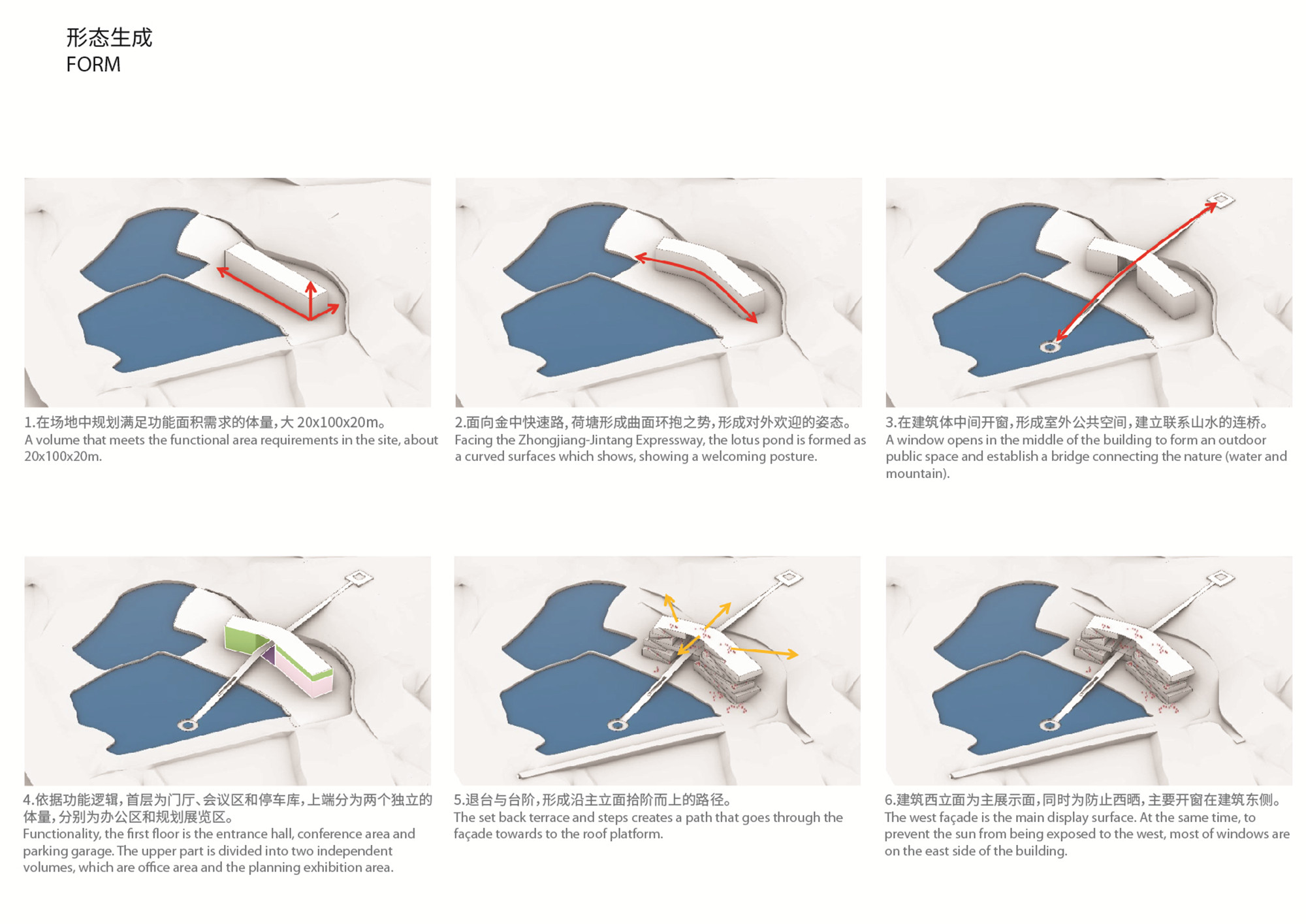

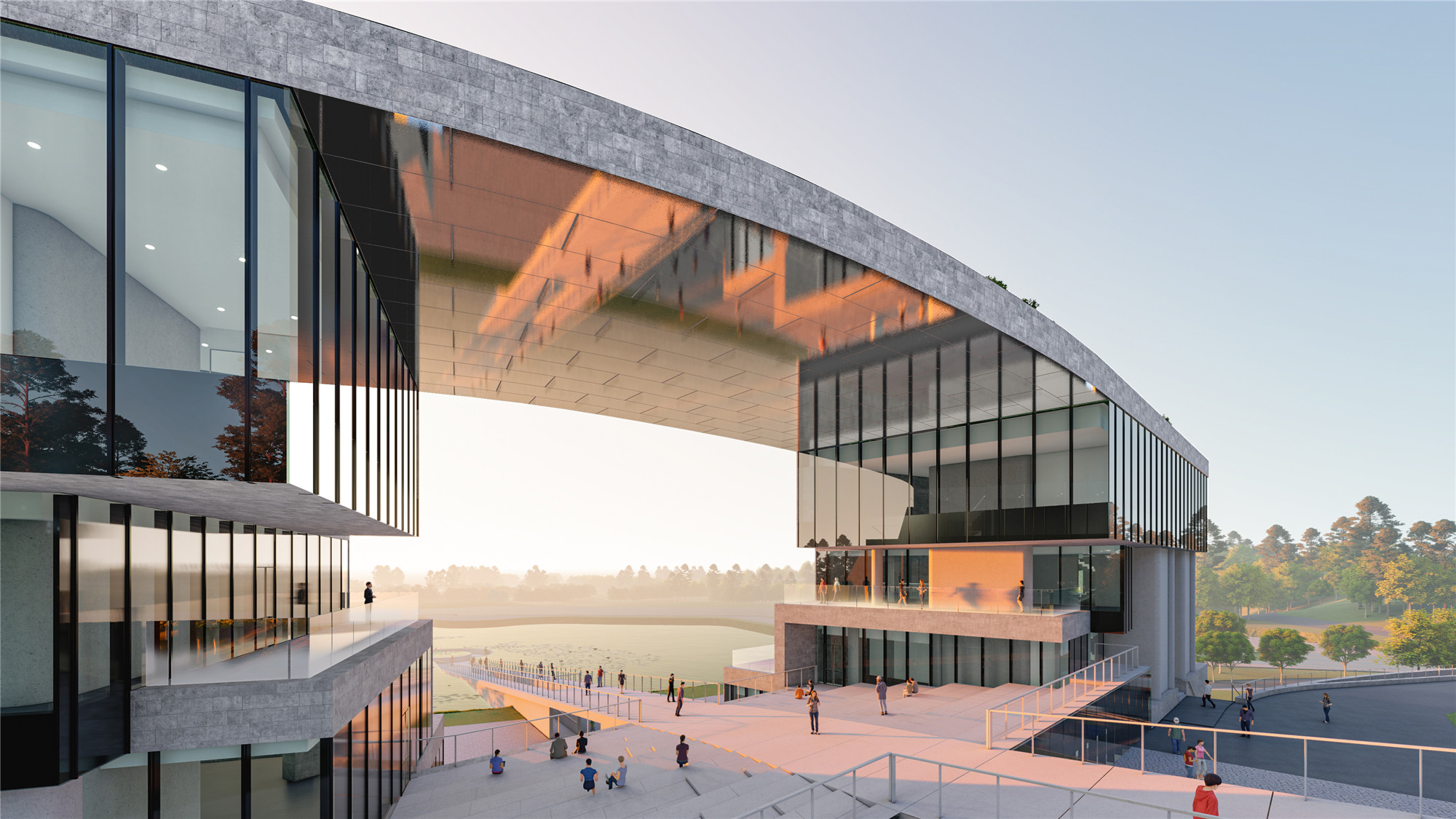
透过这个窗洞,游客可以从荷塘一侧看到后边的山丘,使建筑与自然环境之间形成了相互嵌套的层次空间。原先并不宏大、独特的山水场所,通过廊桥的串联以及建筑窗洞的收放被凸显出来,让人获得全新的场所认知,进一步激发观众的想象,从而获得时空体验。
Through this window, visitors may see the hill behind from one side of the lotus pond, and moreover, forms a nested hierarchical space of the building and the natural environment. The original landscape place neither grand nor unique, however, it is prompted through the connection of the bridge and the shape of the window, which provides visitors a new cognition and further stimulates their imagination to obtain a psychological experience of time and space.

为避免西晒,建筑开窗主要集中在东立面。西立面作为主要展示面,中部的窗口为“虚”,两侧则采取“实”的方式处理。石材界面的体量以层层退台的方式形成室外平台,折返的台阶联系各层平台,在西立面上勾勒出简洁有力、连续向上的路径,由低到高直至屋顶平台,贯穿整个立面。一方面满足竖向交通疏散要求,减少建筑内部交通空间冗余;另一方面弱化建筑体量的压迫感,带来更多变化;更为重要的是给人们提供了拾阶而上、登高远眺、感受自然和城市的机会。方案在此进一步调动观众的流线,在垂直方向及屋顶高度获得领略建筑与周围环境的不同视角,也可以理解为以现实场景的方式展示城市建设过程的平台。
The window opening is mainly on the east facade since it would be exposed to the sun on the west facade. The west facade serves as the main display surface, and the window in the middle is treated as “void”, while the two sides are treated as “solid”. The volume of the stone forms the outdoor terraces which set back layer by layer. The interlaced steps connect with the terrace of each floor and become a concise and continuous path that goes through the facade towards the roof platform. Therefore, it can relieve the vertical transport for the evacuation purpose and reduce the redundancy of the interior transport space, and int the meantime, weakens the oppressing sensation of the building volume and brings more changes. More importantly, it provides visitors with the opportunity to stand high, to look far, and to feel the nature and city. The design further mobilizes the movement path of the visitors, and allows them to experience the building and the surrounding environment from different perspectives in the vertical direction and at the height of the roof. Therefore, it can be considered as a platform through which visitors may witness the urban development process in a realistic scenario.
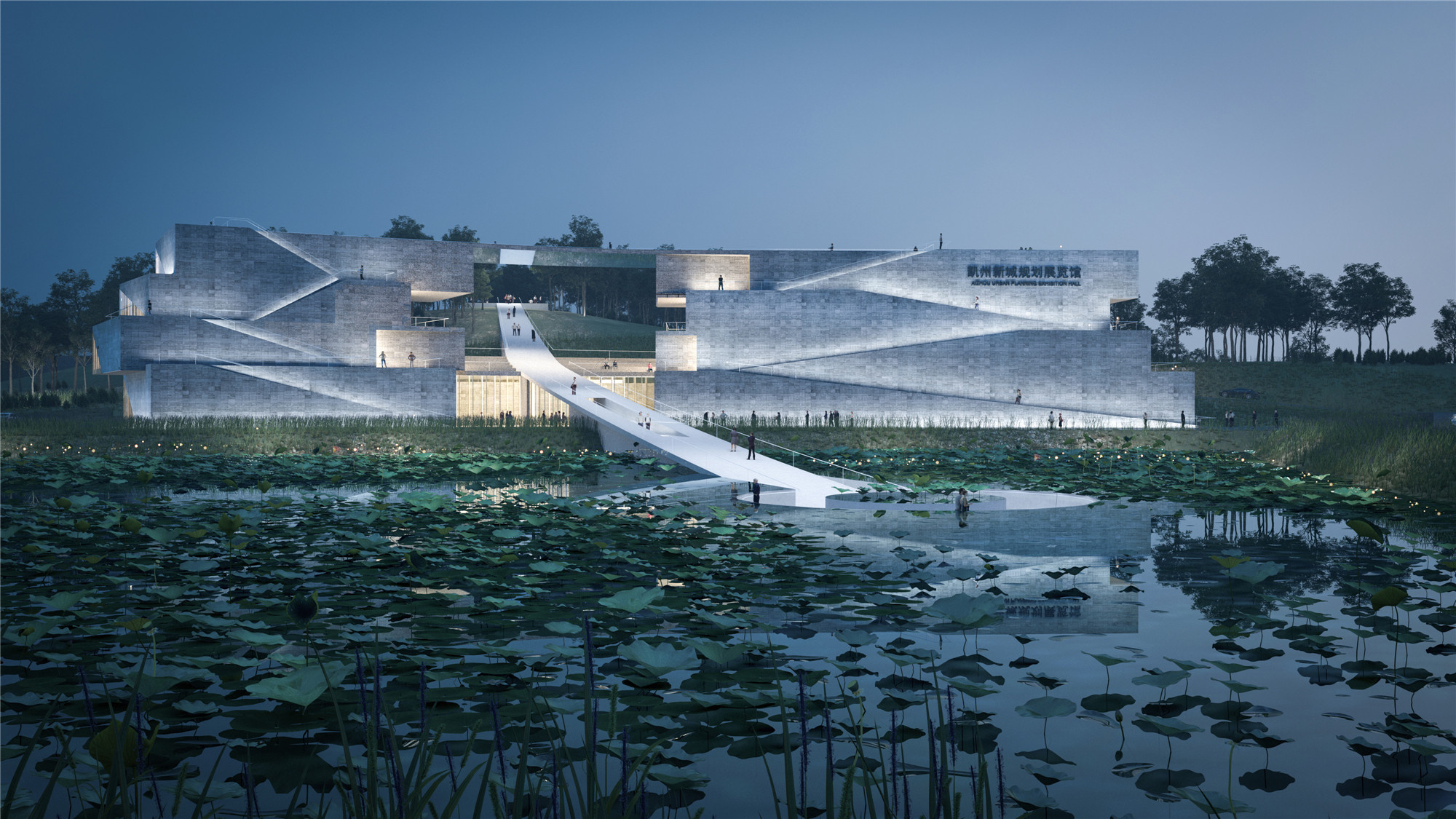
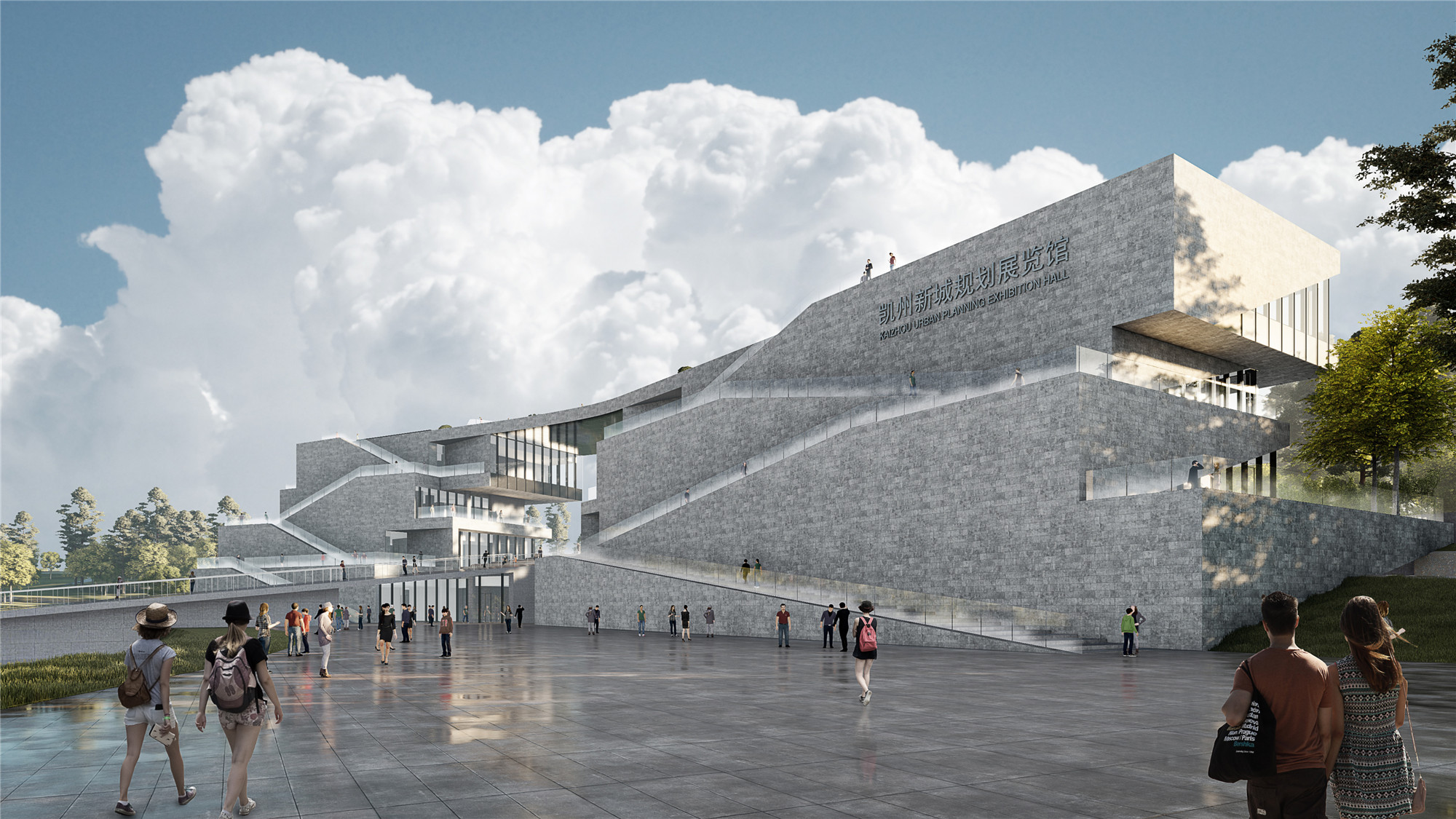
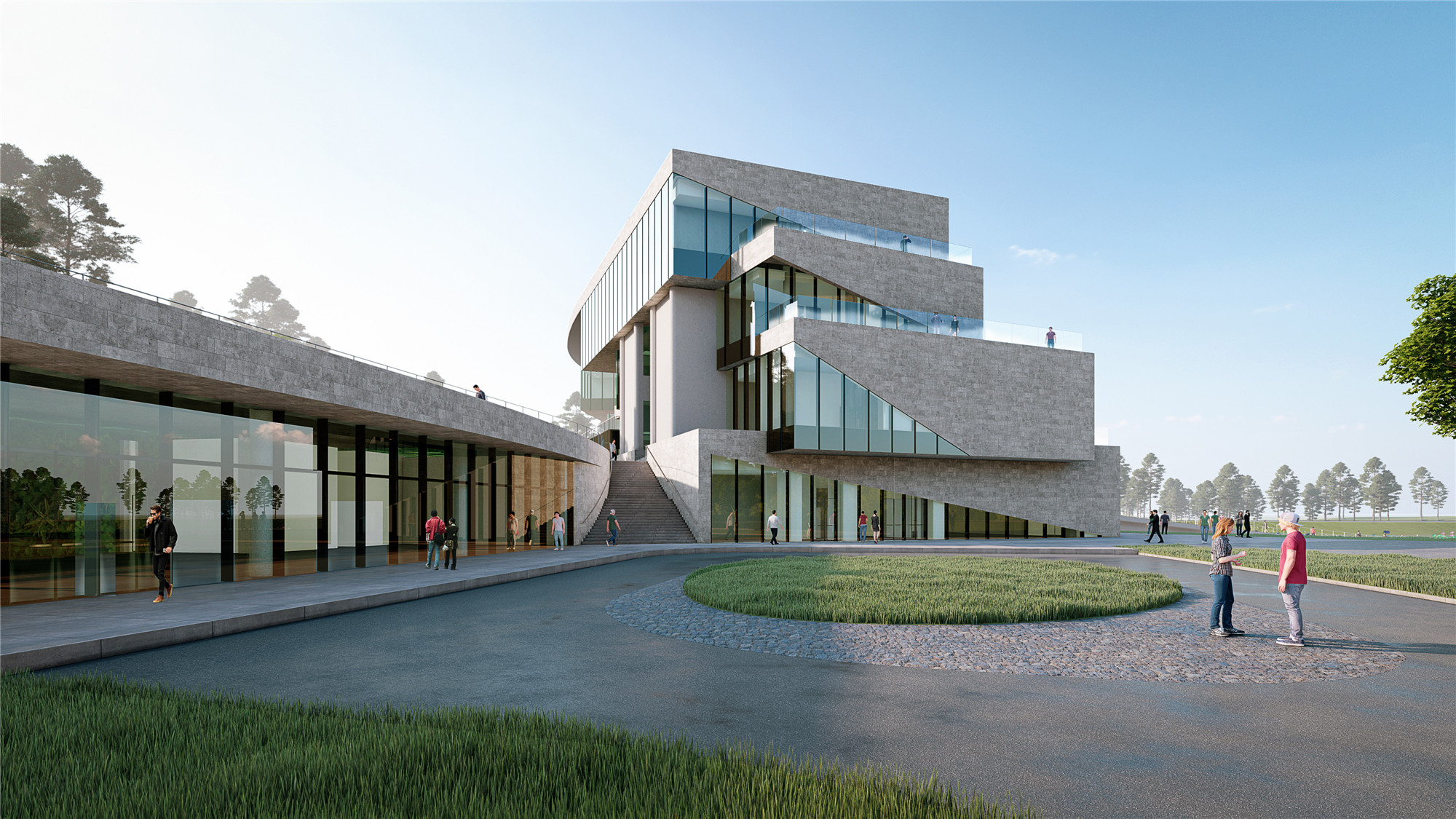
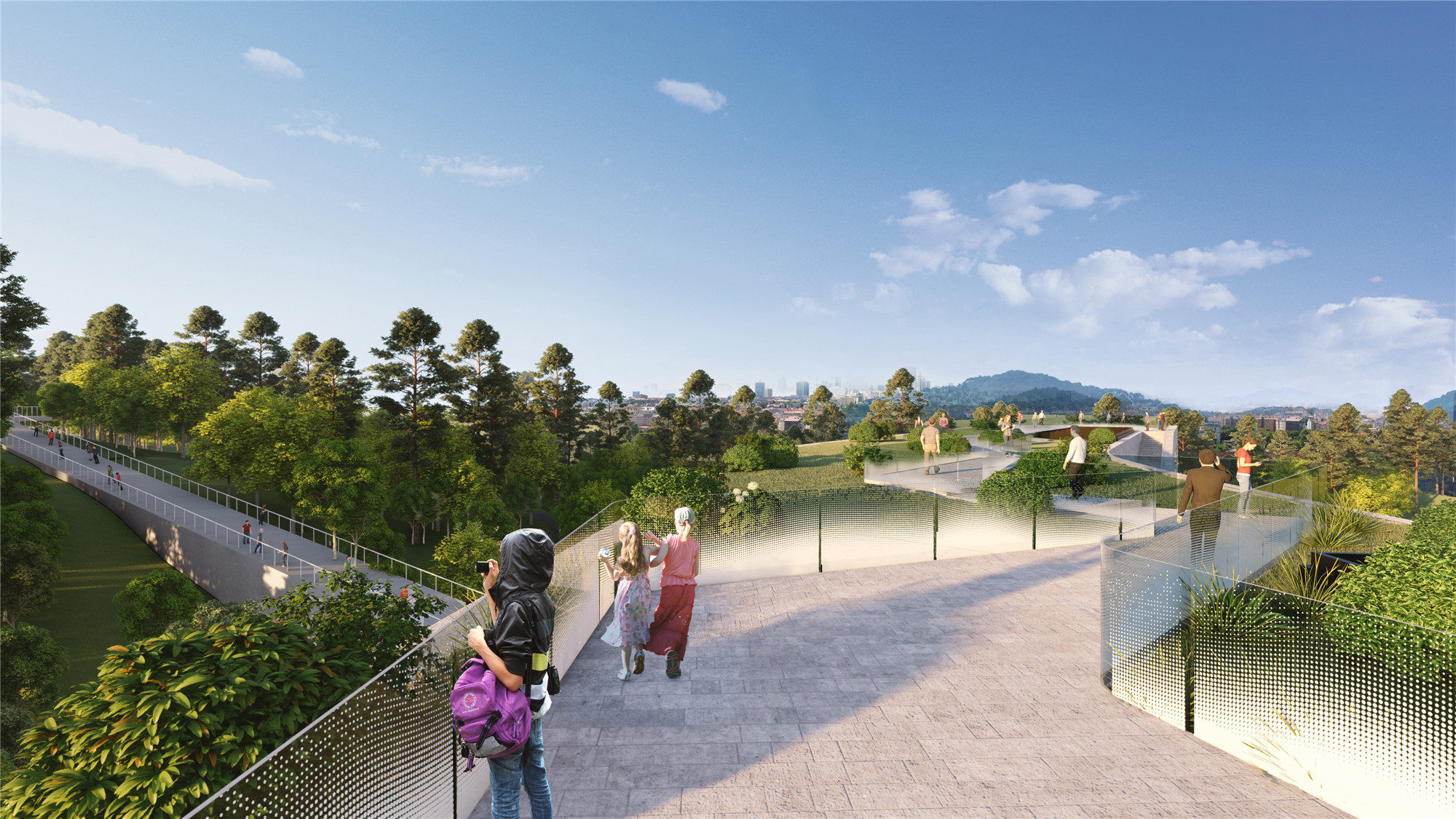
建筑由四层的规划展览馆主体,与北侧一层的员工食堂构成。规划展览馆主体分为南北两个体量,均设置有独立的出入口及竖向交通系统。首层门厅是联系展览馆南北体量的核心空间,也是展览馆主要出入口和礼仪空间。首层门厅南北两侧分别是会议区和停车库。建筑自二层分开为两个体量,又在屋顶处连接为一体,中间的“窗”是开放的室外平台。北侧体量2至4层均为办公区。南侧体量2至3层为规划展览区,4层为办公区。
The whole project is comprised of the four-story exhibition hall as the main body and a staff canteen on the north side. The exhibition hall consists of the south volume and the north volume, both of the volumes are equipped with independent entrances and exits as well as vertical transport system. The entrance hall on the first floor is the key space that connects the south and north volumes, and also serves for main entrance and reception. On this floor, the north side is the conference area, and the south side is the parking garage. This building is divided into two volumes from the second floor which are joined together again at the roof level. The “window” in the middle is an open outdoor platform. On the north volume, the second to the fourth floors are the office areas. On the south volume, the second to the third floors are the planning exhibition areas, and the fourth floor is the office area.




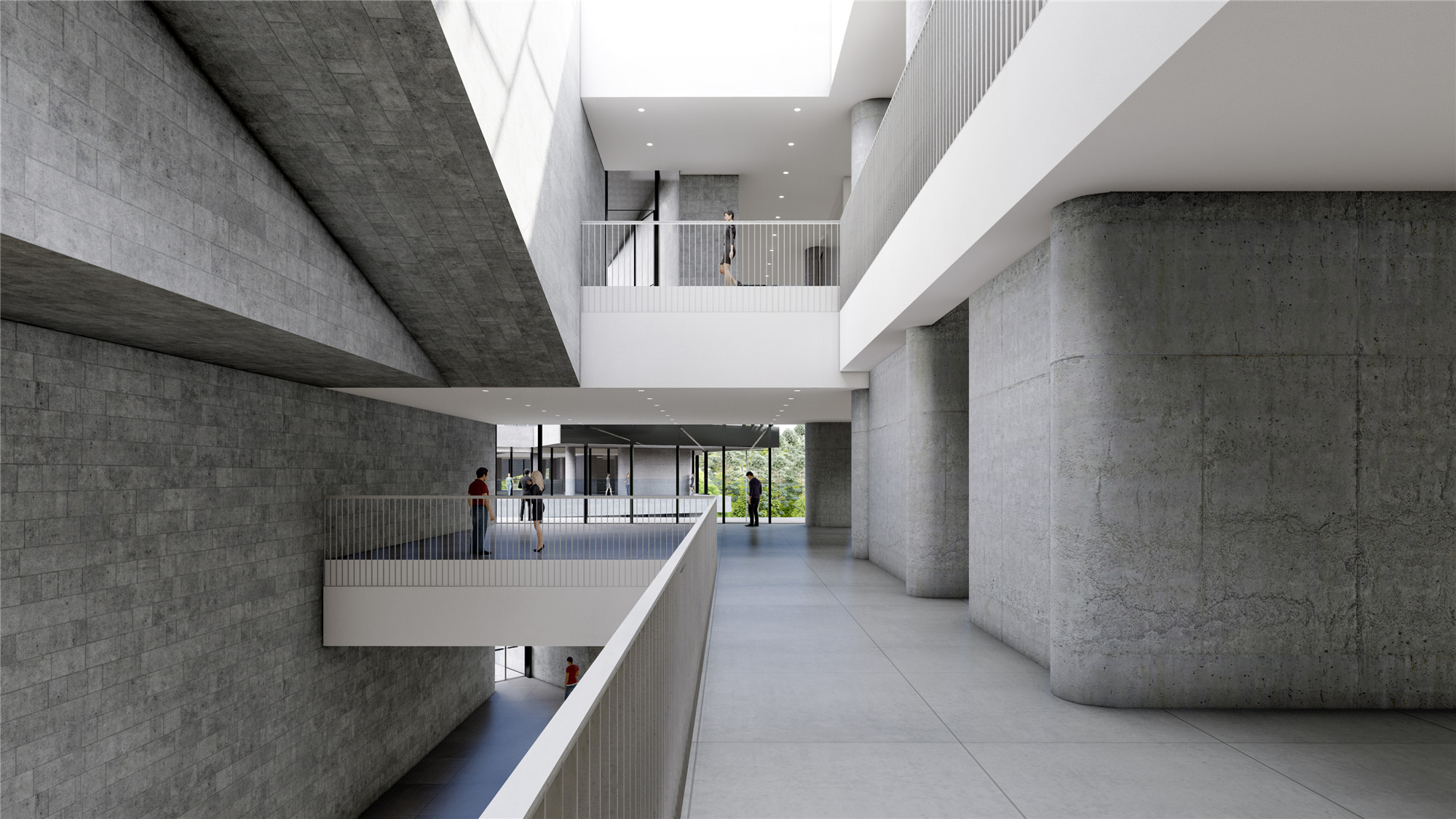
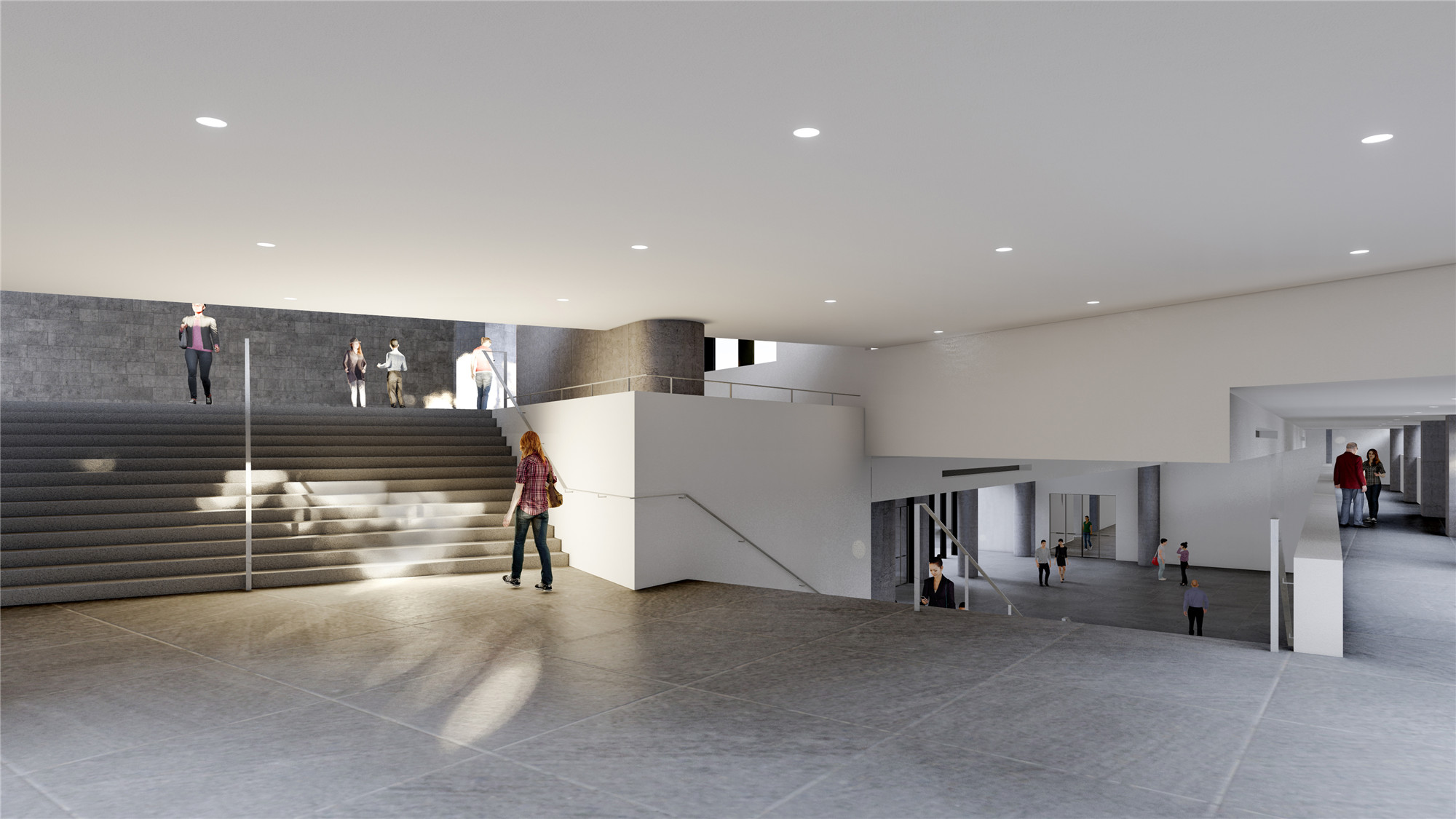
在凯州新城规划展览馆项目中,既能看到自然景观,也能看到人文历史,更能看到人在其中漫步、穿行、登高远眺的场景。人、建筑、自然,三者融为一体,形成人在画中游的图景。它成为生动的城市舞台、展示凯州景观和人文的“未来之窗”。
The exhibition hall makes it possible for the visitors to see the natural landscapes as well as the human history, and watch them walking, passing through and climbing. By integrating human, architecture and nature into a picturesque scene, it becomes the liveliest urban stage and “a window of the future” that shows the landscape and culture of the Kaizhou new town.

设计图纸 ▽

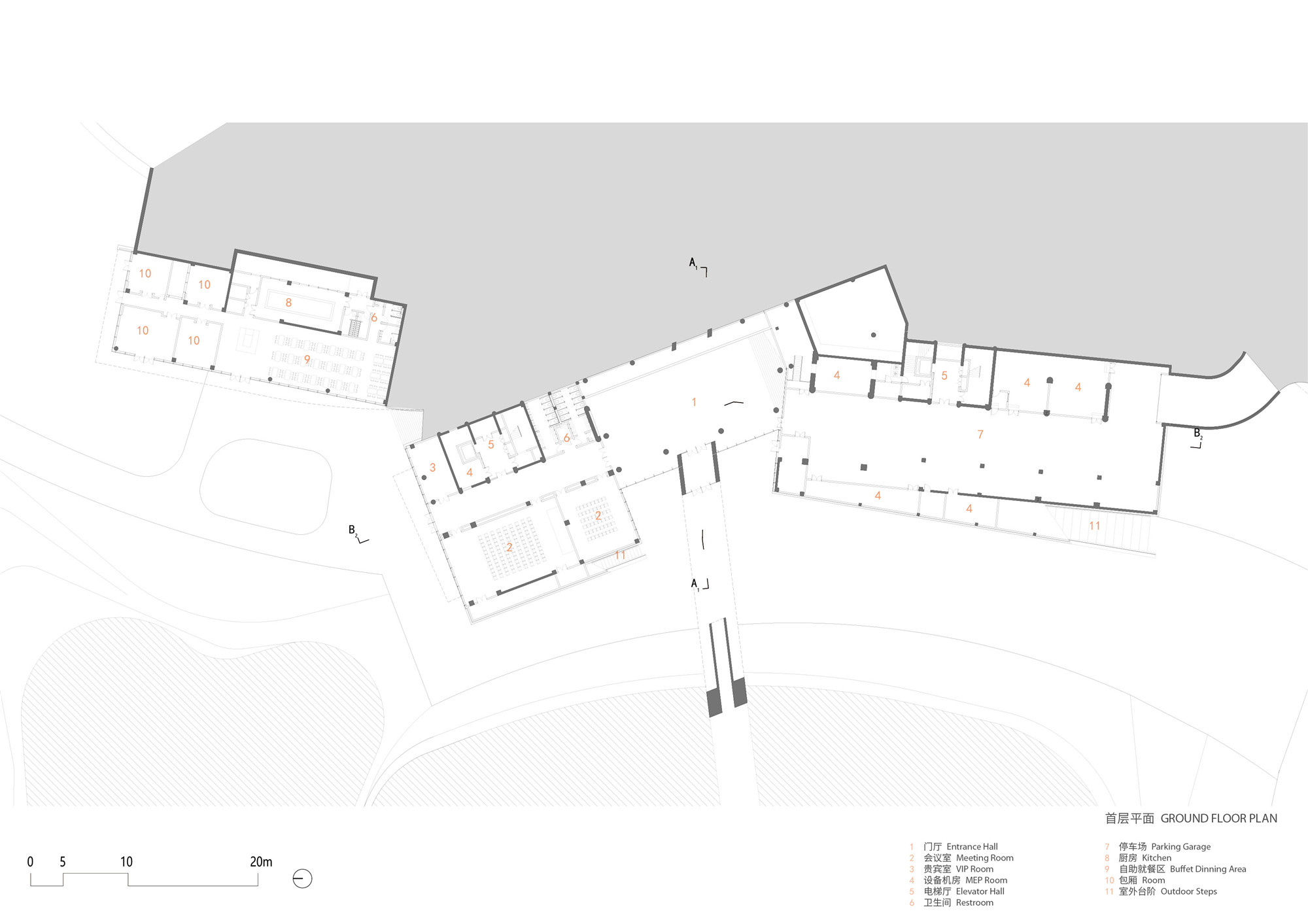

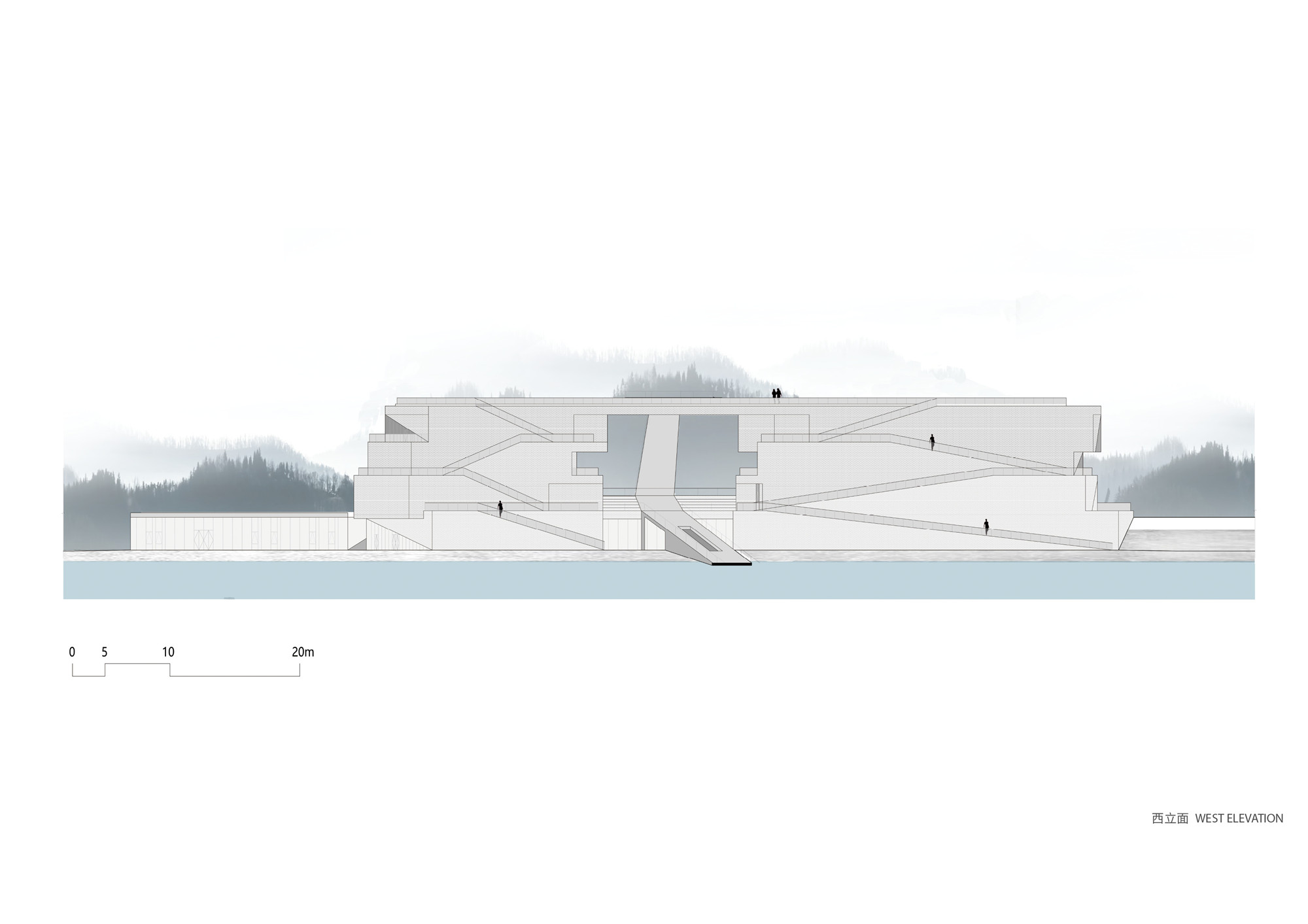
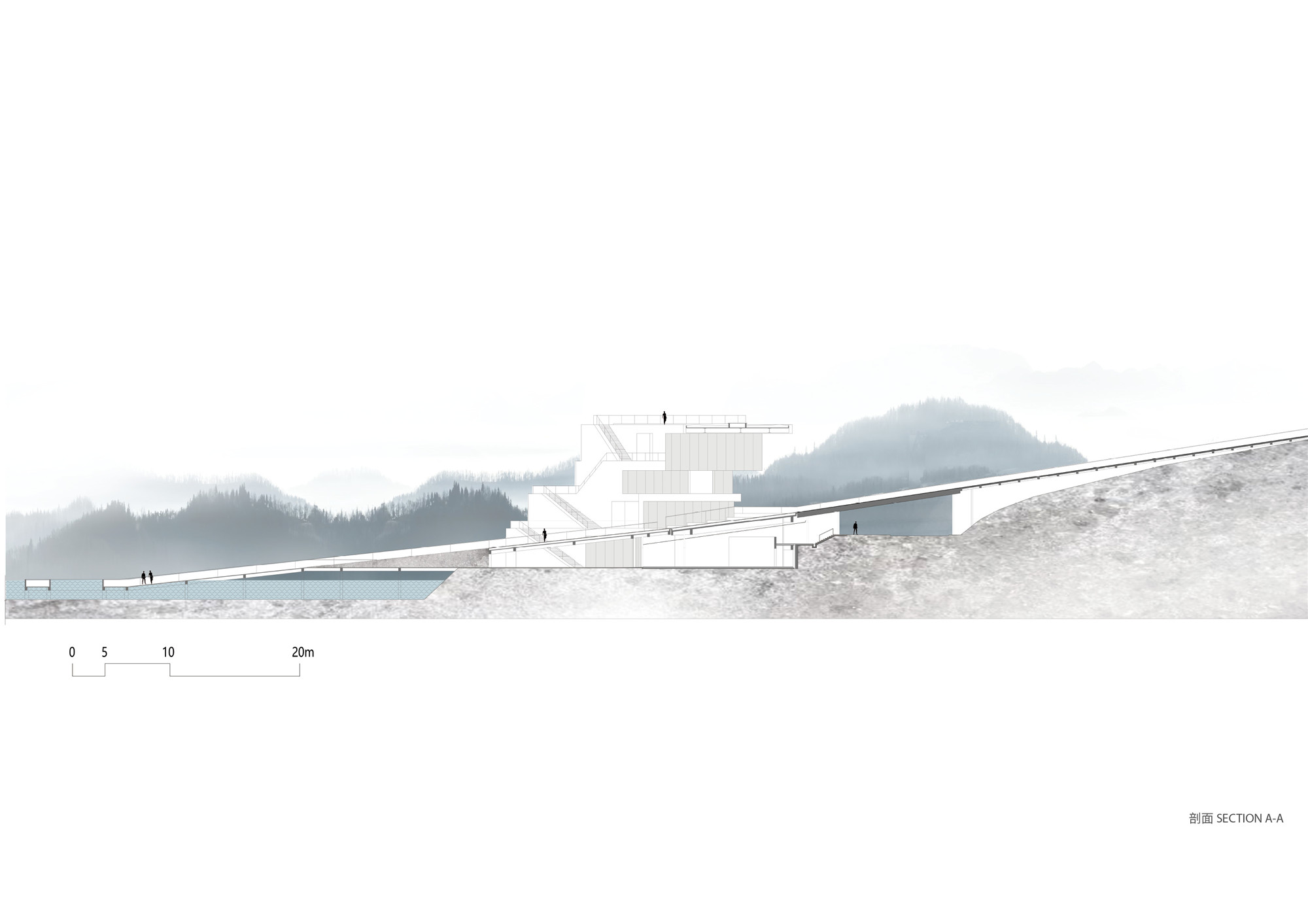

完整项目信息
项目名称:凯州之窗
项目地点:四川省德阳市凯州新城
设计时间:2020年
建成时间:建设中
用地面积:14100.74平方米
建筑面积:7819.93平方米
业主:德阳市凯州投资开发有限责任公司
设计单位:北京市建筑设计研究院有限公司 朱小地工作室
主持建筑师:朱小地
项目建筑师:贾琦
建筑:罗盘、孙晓倩、孙栓柱、王烨、马宜勃、李燚、王晓东
结构:陈晗、尹飞
设备:崔玥
电气:毕雅冲
照明:胡芳、李亚辉、李青竹、马赞堡、贾淳中、崔文宇、梁彬、杨科、刘科
版权声明:本文由北京市建筑设计研究院有限公司 朱小地工作室授权发布,欢迎转发,禁止以有方编辑版本转载。
投稿邮箱:media@archiposition.com
上一篇:建筑一周 | Studio Gang大改百年煤电厂;安藤忠雄英国唯一建筑即将被拆;阿贾耶公布塔博·姆贝基总统图书馆新方案
下一篇:扎哈·哈迪德遗产纠纷尘埃落定,公司董事会权利风波又起